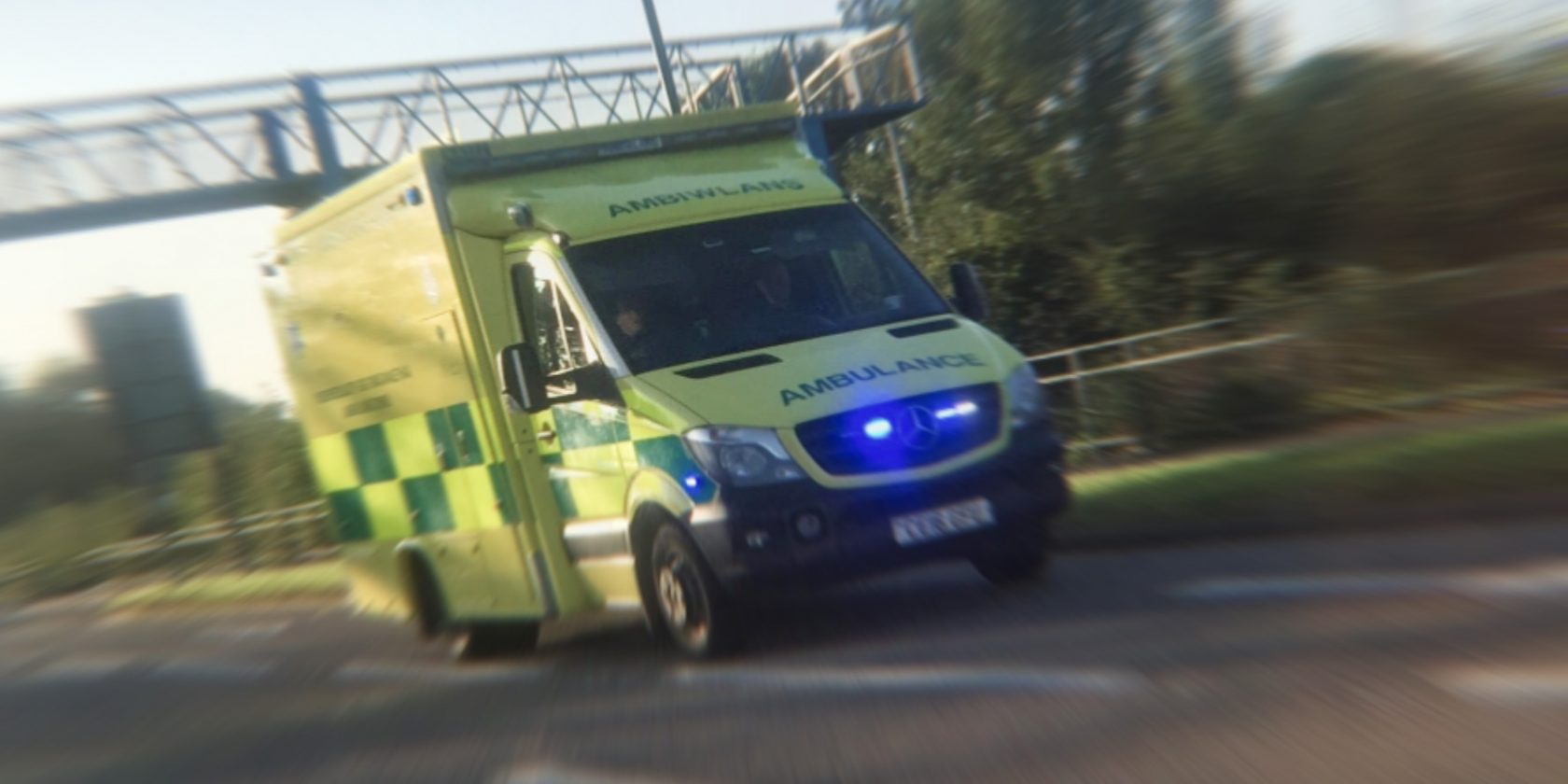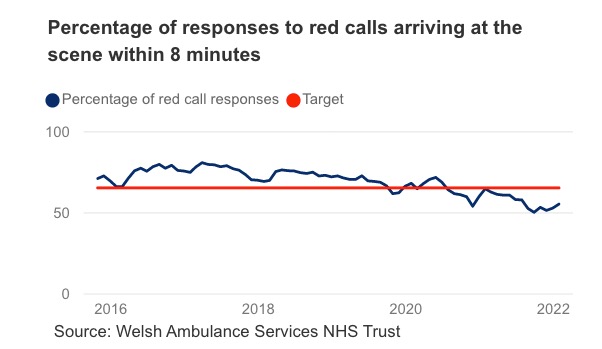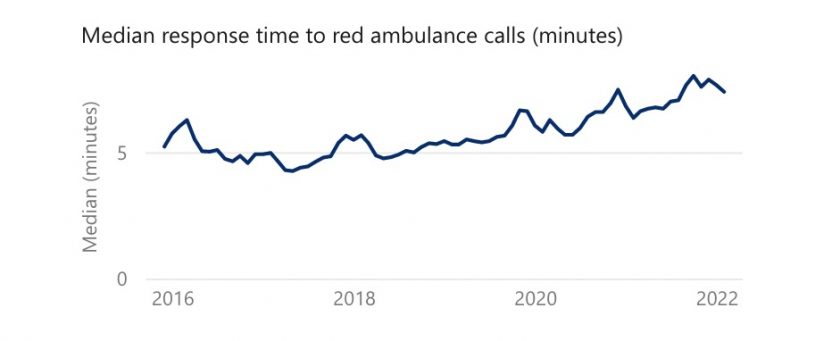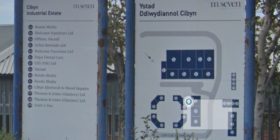Call for improvements as only one in two of most serious ambulance calls reached within target time

A call has been made for improvements as figures show only around one in two of the most serious calls to the Welsh Ambulance Service are being reached within the target time period.
First Minister Mark Drakeford and Welsh Conservative leader Andrew RT Davies have clashed this afternoon over the latest performance data for the country’s ambulance service.
Mr Davies raised the issue during today’s First Minister’s Questions, placing responsibility directly with Mr Drakeford and his government.
He also highlighted recent media reports of covert recordings by frontline ambulance workers, which revealed some staff had faced the threat of disciplinary action for raising concerns.

In Wales the call categories and targets for ambulance response times are:
- Red: Immediately life-threatening (someone is in imminent danger of death, such as a cardiac arrest). There is an all-Wales target for 65 per cent of these calls to have a response within 8 minutes.
- Amber: Serious, but not immediately life-threatening (patients who will often need treatment to be delivered on the scene, and may then need to be taken to hospital). These calls will include most medical and trauma cases, such as cardiac chest pains, stroke or fracture. There is no time-based target for amber calls.
- Green: Non urgent (can often be managed by other health services and clinical telephone assessment). These will include fainting (recovered and alert), minor injuries or earache. There is no official time based target for these calls.
The latest data was published on March 24th, which noted 55% of red calls were reached within eight minutes in February 2022 – as shown above.
Only 22.6% of amber call patients – which include strokes – were reached within 30 minutes.
The median – middle point – of all times is below, which stood at 7.38 minutes for red calls.
Other data is also given on the latest emergency department attendance figures:
The data was referenced by Mr Davies, who said: “On the red-alert calls, you had a literally one in two chance of having that call responded to.
“On amber calls, you’ve got a less than one in five chance of that being responded to in the 30-minute target time.
“Sixty-five per cent of red calls should hit that eight-minute response time. As I said, you’ve got a 50:50 chance now in Wales, regrettably, of having that happening.
“First Minister, some time ago, the Health Minister, Eluned Morgan, said you were investing in the ambulance service and this investment was paying real dividends.
“On those figures, clearly, these dividends aren’t coming through. When are we going to see the improvements that the people of Wales deserve?”
Mr Drakeford said the service had met its targets for 48 weeks in a row before the Covid pandemic began in March 2020.
He said the virus had caused “major challenges” with ambulances having to be deep cleaned after transporting Covid patients.
Responding to Mr Davies he said: “The figures for the last month show the ambulance service holding its own in Wales, despite the fact that the number of calls to the service has been running at all-time record highs over this winter.
“The minister was right when she pointed to the investment that is going into the ambulance service, particularly in the recruitment of new staff.
“New staff are joining the ambulance service all the time, and there are more staff being recruited to help provide the service that people in Wales deserve to have.”
Mr Davies said he had raised the issue of response targets not being met “time and time again” during the last 18 months.
He also voiced concerns about the impending withdrawal of military support to help the ambulance service keep running during the pandemic.
He said: “Members across the political divide have raised heart-wrenching issues of their experiences across the whole of Wales, where regrettably ambulances haven’t been able to respond to life-threatening situations.
“We know the ambulance service has been supported by the military on several occasions. That support is coming to an end come 31 March.
“What measures has the Welsh Government along with the ambulance service put in place to make sure that we don’t end up with a cliff edge on 31 March, and ultimately these figures deteriorate even worse than they are now?”
The First Minister expressed his thanks to the military for helping the ambulance service during the pandemic.
However, he said: “It is inevitable that that help must come to an end, and there are many other calls at the moment on the services of the military.
“What the Welsh Government has been doing is to invest in new, permanent, full-time members of staff, trained to the level where they’re able to carry out all the duties that you would expect the ambulance service to be able to undertake.
“More broadly, the Welsh Government has been supporting the ambulance service in a two-week reset of the service in the first half of this month. The results of that reset are still being analysed.
“I’m pleased to say that over the last two weeks we’ve seen a 10 per cent reduction in the daily average ambulance hours lost compared to the two weeks before the reset was established.
“I think that gives us some optimism that we are creating the platform that will allow the ambulance service to deal with the diminution in the number of people available to it as military help is withdrawn.”
Mr Davies went on to reference media reports, where ambulance workers have discussed the “soul-destroying” nature of their job, with some being put on anti-depressants to get them through the day.
He said: “From covert recordings we heard that from a management level, where genuine concerns are being raised, people are being put on pathways to disciplinary measures against them.
“I hope you’ll agree with me that that cannot be tolerated in a public organisation anywhere in Wales.”
He asked for assurances that people in Wales will see “genuine improvement” in ambulance response times, which result in targets being met.
Mr Drakeford said the ambulance trust was doing “everything it can” to provide a good service.
But he added that the current rise in coronavirus cases would impact on the service over the next few weeks.
He said: “The leader of the opposition will know that we have some of the highest numbers of people falling ill with the virus of any time in the whole of the pandemic.
”Only a matter of weeks ago, we managed to reduce the number of people in hospital beds suffering from coronavirus down to around 700. It went above 1,400 yesterday, and that number has continued to rise.
“That has an impact upon the whole system’s ability to deal with the demands on it, including the ambulance service.
“It has a direct impact on the speed with which the ambulance service itself is able to respond to the calls that it receives, and it drives up the number of calls that are made.
“While I think the service is doing everything it can, and the investment from the Welsh Government is there to support it in all of that, it continues to operate within a very challenging context.”
Spotted something? Got a story? Send a Facebook Message | A direct message on Twitter | Email news@north.wales








